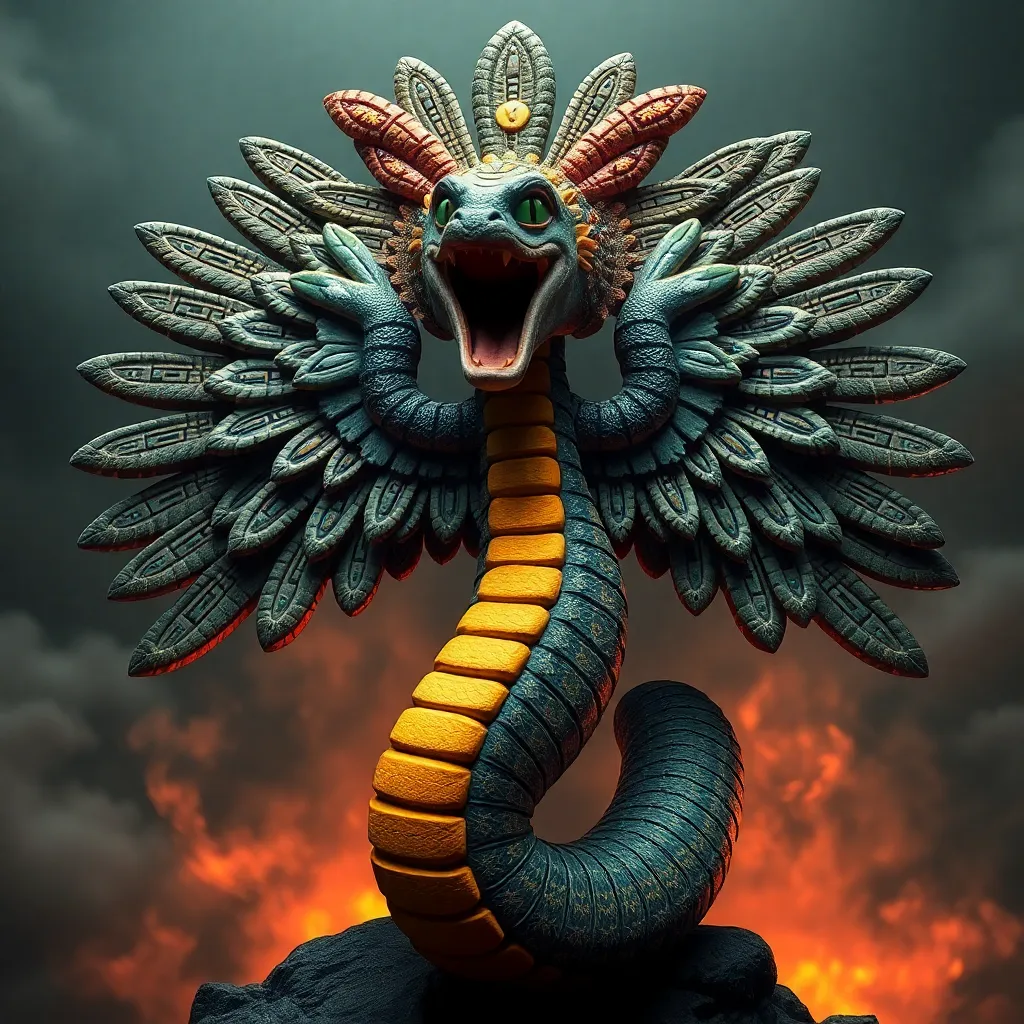The Tapestry of Courage and Sacrifice in Māori Mythology
The Māori people, indigenous to New Zealand, have a rich tapestry of mythology woven with stories of courage and sacrifice. These tales, passed down through generations, are more than just entertaining stories; they are a reflection of the Māori worldview, values, and cultural identity. In these myths, courage is not simply a physical attribute, but a reflection of inner strength, determination, and resilience in the face of adversity. Sacrifice, often a painful act of selflessness, is depicted as a necessary act to protect the tribe, the land, or maintain balance within the natural world. These themes are interwoven throughout Māori mythology, offering profound insights into the Māori understanding of life, death, and the interconnectedness of all things.
The Significance of Courage in Māori Culture
Courage, or "māia" in Māori, is a core value deeply ingrained in Māori culture. It's more than just bravery on the battlefield; it encompasses the ability to face challenges with strength, determination, and resilience. Māori mythology celebrates individuals who demonstrate courage in various ways: facing down dangerous creatures, seeking knowledge, protecting their community, and upholding their principles.
Courage is often portrayed as a necessary quality for survival in a world filled with challenges. The environment itself demands bravery – the treacherous seas, dense forests, and unpredictable weather patterns all require individuals to be bold and resourceful. But courage goes beyond physical survival. It also embodies the strength to stand up for what is right, to speak truth to power, and to defend one's beliefs and values, even when facing opposition.
The Tangata Whenua: Guardians of the Land
The Māori people consider themselves "tangata whenua," meaning "people of the land." Their mythology reflects a deep connection to their environment, where the land is not merely a resource but a living entity with its own spirit. This connection is reflected in the stories of courageous individuals who act as guardians of the land, protecting it from harm, exploitation, and environmental imbalance.
Many mythical figures, like the demigod Maui, are credited with shaping the land and bringing its resources to the people. Their stories depict the importance of respect for nature, the responsibility to protect the environment, and the consequences of neglecting these duties. This deep respect for the land is also reflected in Māori values like "mana," which signifies power, prestige, and authority, but also the responsibility that comes with it.
The Gods and Goddesses: Embodiments of Courage and Sacrifice
Māori mythology features a diverse pantheon of gods and goddesses, many of whom embody courage and sacrifice. These deities are not merely distant figures but active participants in the world, influencing events, interacting with humans, and offering lessons through their actions.
One prominent example is Tūmatauenga, the god of war and hunting. He is depicted as a brave warrior, often fighting to protect his people and the land. But even in the context of warfare, he is portrayed as a complex figure who also represents the vital role of hunting and providing for the community. This complexity reflects the duality of courage – its potential for both constructive and destructive actions.
Other deities like Rongo, the god of peace and agriculture, and Hine-nui-te-pō, the goddess of night and death, also embody courage through their roles in maintaining harmony and balance within the world. Their stories highlight the importance of understanding the natural cycles of life, death, and rebirth.
The Epic Tales of Courage and Sacrifice
Māori mythology is rich with epic tales of courage and sacrifice. These stories often involve legendary heroes who confront formidable challenges, facing down mythical creatures, overcoming natural obstacles, and making difficult choices to protect their loved ones and their community.
One well-known tale is the story of the demigod Maui, who is credited with fishing up the North Island of New Zealand, conquering the sun, and bringing fire to humanity. His adventures are filled with feats of strength, cleverness, and bravery, demonstrating the resilience and ingenuity of the Māori people.
Another epic tale involves the story of Kupe, a legendary navigator who is believed to have been the first Polynesian to reach New Zealand. His voyages are celebrated as acts of incredible courage, charting unknown territories and facing the perils of the vast Pacific Ocean. These tales not only entertain, but they also serve as inspiration and models of behavior for future generations. They offer examples of how to face adversity with courage, resilience, and a determination to achieve one's goals.
The Hero’s Journey: Facing Trials and Overcoming Obstacles
Māori mythical tales often follow the classic hero's journey structure, where a protagonist faces trials and obstacles, eventually overcoming them through courage, determination, and sometimes, the aid of supernatural forces. These stories highlight the importance of facing challenges head-on, embracing the unknown, and learning from experiences. The hero's journey is not a linear path but a process of growth and transformation, often accompanied by sacrifice and personal loss.
The challenges faced by heroes in these stories can be physical, mental, or spiritual. They might involve confronting fearsome creatures or battling natural forces. But often, the most difficult battles are against internal struggles, such as overcoming doubt, fear, or temptation. The heroes in these tales are not always perfect, but they are defined by their courage to face their weaknesses and strive for something greater. These stories emphasize that true courage is not about being fearless but about facing fear head-on and persevering despite obstacles.
The Power of Sacrifice: Protecting the Tribe and the Land
Sacrifice is a recurring theme in Māori mythology, reflecting a deep understanding of the interconnectedness of all things and the importance of giving for the good of the community. Sacrifice is not always about death. It can involve giving up something valuable, such as time, resources, or personal comfort, to benefit others. The willingness to sacrifice for the greater good is seen as a mark of true courage and a testament to the strength of community bonds.
Many stories illustrate the power of sacrifice, highlighting its transformative and restorative nature. For instance, the legend of Hine-nui-te-pō, the goddess of night and death, portrays the importance of accepting death as a natural part of life. Her story suggests that through death, life is renewed and the cycle of existence continues. Similarly, the story of Maui, who sacrifices himself to bring fire to humanity, shows how one individual's sacrifice can benefit the entire group.
These tales teach that sacrifice can be both a painful experience and a powerful act of love and devotion. Sacrificing for others demonstrates the importance of community, the power of shared experiences, and the enduring nature of connections forged through shared hardship and sacrifice.
The Role of the Supernatural: Tests of Strength and Determination
The supernatural world plays a significant role in Māori mythology, providing both challenges and opportunities for individuals to demonstrate courage and determination. Many mythical creatures, both benevolent and malicious, represent the forces of nature, the unknown, and the mysteries of the world. Facing these supernatural beings often requires more than physical strength; it requires resourcefulness, ingenuity, and a deep understanding of the natural world.
The encounters with supernatural beings often serve as tests of character, pushing individuals to their limits and revealing their true nature. The hero's ability to overcome these supernatural challenges demonstrates their strength, resilience, and ability to adapt to unpredictable situations. These encounters with the supernatural often teach valuable lessons about respect for nature, the power of knowledge, and the importance of staying true to one's beliefs.
The Legacy of Courage and Sacrifice in Contemporary Māori Society
The themes of courage and sacrifice present in Māori mythology continue to resonate with contemporary Māori society. These stories inspire individuals to face challenges with resilience, to protect their community and environment, and to strive for a better future. The values of "māia" (courage) and "mana" (prestige and responsibility) remain central to Māori identity, guiding their actions and influencing their decisions.
These ancient stories offer a powerful framework for understanding the complexities of modern life, providing guidance on navigating ethical dilemmas, making difficult choices, and fostering a sense of belonging within a community.
Interpretations and Modern Perspectives on Māori Mythological Tales of Courage and Sacrifice
While these tales have been passed down for generations, they are not static. Contemporary Māori scholars and storytellers continue to reinterpret and reinterpret these traditional narratives, offering fresh perspectives, drawing connections to modern issues, and exploring the nuances of these themes.
These interpretations are vital for ensuring that these stories remain relevant and meaningful to future generations. By acknowledging the power and complexities of these tales, modern perspectives can help to bridge the gap between the past and present, fostering a deeper understanding of Māori culture, values, and beliefs.
FAQ
Q: What are some key takeaways from Māori tales of courage and sacrifice?
A: These stories emphasize the importance of facing challenges head-on, protecting one's community and environment, and demonstrating resilience in the face of adversity. They also highlight the importance of respect for nature, the interconnectedness of all things, and the power of sacrifice for the greater good.
Q: How do these tales relate to contemporary Māori culture?
A: The themes of courage and sacrifice remain deeply ingrained in Māori culture, guiding their actions and influencing their sense of identity. These stories provide a framework for understanding modern challenges and navigating ethical dilemmas, fostering a sense of belonging within a community.
Q: Why are these myths important to study?
A: Studying Māori mythology provides insights into the Māori worldview, values, and cultural identity. It allows us to understand the complexities of their history, beliefs, and traditions, and offers valuable lessons on facing challenges, fostering community, and respecting the natural world.



